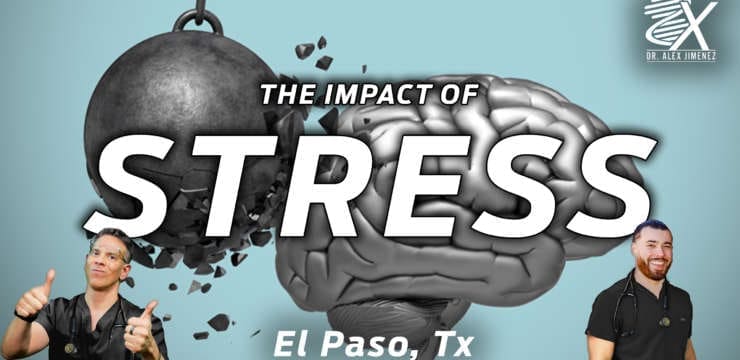
Discover the impact of TMJ disorders associated with auto injuries on your daily activities and learn strategies for pain management.
Table of Contents
Introduction: When Your Jaw and Neck Throw a Monster Rally
Picture this: you’re cruising down the road, maybe humming a tune, when—bam!—a fender bender turns your day upside down. Beyond the hassle of car repairs and insurance claims, you might find yourself dealing with some uninvited guests: jaw pain and neck stiffness. It’s like Herman Munster from The Munsters decided to crash your party, bringing along his pals, TMJ disorders, and neck pain. While we’ll sprinkle a bit of humor to keep things light, these conditions are no laughing matter. They can significantly impact your daily life, especially when caused by motor vehicle accidents (MVAs).
This comprehensive guide examines the clinical relationship between temporomandibular joint (TMJ) disorders and neck pain resulting from motor vehicle accidents (MVAs). We’ll delve into the science behind these injuries, outline common symptoms, and explore effective nonsurgical treatments. We’ll also highlight the expertise of Dr. Alexander Jimenez, a renowned chiropractor and nurse practitioner in El Paso, Texas, who specializes in treating personal injury cases. His unique approach bridges the gap between medical care and legal support, making him a vital resource for accident victims. Let’s get started on understanding how to tackle these pesky problems and get you back to feeling like yourself.
Section 1: The Connection Between TMJ Disorders and Neck Pain from MVAs
What Are TMJ Disorders?
The temporomandibular joint (TMJ) is the hinge connecting your lower jaw (mandible) to your skull, located just in front of your ears. This joint, supported by muscles, ligaments, and a cushioning disc, allows you to chew, speak, and yawn. TMJ disorders (TMD) occur when this joint or its surrounding structures malfunction, leading to pain and dysfunction. Causes range from stress-induced teeth grinding to arthritis, but MVAs are a significant trigger, particularly due to whiplash injuries.
How MVAs Cause TMJ Disorders and Neck Pain
Motor vehicle accidents, especially rear-end collisions, often result in whiplash, a rapid back-and-forth motion of the head and neck. This sudden movement strains neck muscles and ligaments, but it can also stress the TMJ. The force can displace the TMJ’s disc, inflame surrounding tissues, or cause muscle tension that affects jaw function. Research suggests that up to 15% of adults may experience TMJ disorders, with MVAs being a common cause (Dubrovsky Lawyers).
Clinical Rationale: The Science Behind the Connection
The link between TMJ disorders and neck pain from MVAs is rooted in biomechanics and neurophysiology. During a collision, the head’s rapid movement can:
- Displace the TMJ disc: This internal derangement causes pain and restricts jaw movement (Fernandez et al., 2009).
- Trigger referred pain: Pain signals from the neck can converge with jaw signals in the brainstem, leading to jaw pain even without direct trauma (Friedman & Weisberg, 2004).
- Increase muscle tension: Chronic neck pain can overstimulate pain receptors, causing jaw muscles to tense and worsen TMJ symptoms (Steigerwald et al., 2005).
A 1998 study found that 31 TMD patients exhibited significant segmental limitations at the C0-C3 cervical spine levels and tender points in the sternocleidomastoid and trapezius muscles, compared to 30 controls (Hauser, n.d.). A 2021 study further noted the anatomical and neurophysiological connection via the trigeminocervical nucleus, which links the cervical spine and masticatory system. Forward head posture, often exacerbated by neck pain, is also more prevalent in TMD patients, contributing to both conditions.
| Study | Year | Findings | Source |
|---|---|---|---|
| Fernandez et al. | 2009 | Whiplash exacerbates neck pain, headaches, and shoulder pain in TMD patients. | Journal of the Canadian Chiropractic Association |
| Hauser | n.d. | A 1998 study found that TMD patients exhibited limitations in C0-C3 and muscle tenderness. | Caring Medical |
| Hauser | n.d. | 2021 study: Trigeminocervical nucleus links cervical spine and masticatory system. | Caring Medical |
Section 2: Symptoms of TMJ Disorders After MVAs
TMJ disorders from MVAs can manifest in ways that make everyday activities like eating or talking feel like a chore. It’s as if your jaw is staging a sit-in, refusing to cooperate without a fight. Symptoms may appear immediately or develop weeks to months later, which is why vigilance is key. Common symptoms include:
- Jaw pain and tenderness: Around the jaw, ears, or extending to the neck and shoulders.
- Difficulty chewing: Pain or discomfort when eating, especially tough foods.
- Limited jaw movement: Stiffness or locking, making it hard to open or close the mouth.
- Clicking or popping sounds: Indicating possible disc displacement.
- Headaches: Often starting at the temples and spreading.
- Ear issues: Pain, ringing (tinnitus), or a feeling of fullness.
- Bite changes: Misalignment of upper and lower teeth.
- Neck and shoulder pain: Often linked to whiplash-associated disorders (WADs).
These symptoms can disrupt sleep, work, and social interactions, making early diagnosis and treatment essential (Truitt Law Offices).
Chiropractic Care After Accidents & Injuries- Video
Section 3: Nonsurgical Treatments for TMJ Disorders and Neck Pain
Good news: you don’t need to go under the knife to find relief. Nonsurgical treatments can work wonders, like convincing Herman Munster to trade his monster mash for a soothing massage. Here’s a look at effective options:
Chiropractic Care
Chiropractic care is a cornerstone of treatment for TMJ disorders and neck pain from MVAs. Chiropractors use spinal adjustments, manual manipulation, stretches, and exercises to address the root cause, often misalignment of the neck and spine resulting from whiplash. By realigning the spine, chiropractors can reduce muscle tension and improve jaw function (Jimenez, 2016).
Other Nonsurgical Treatments
- Physical therapy: Strengthens jaw and neck muscles, improving range of motion.
- Occlusal splints/mouth guards: Reduce teeth grinding and clenching, which is common in TMD.
- Medications: Anti-inflammatories or pain relievers to manage symptoms.
- Lifestyle changes: Stress management, soft food diets, and avoiding habits like gum chewing.
| Treatment | Description | Benefits |
|---|---|---|
| Chiropractic Care | Spinal adjustments and manual therapy | Reduces pain, improves alignment |
| Physical Therapy | Exercises for the jaw and neck | Enhances strength and mobility |
| Occlusal Splints | Custom mouth guards | Prevents grinding, reduces strain |
| Medications | Pain relievers, anti-inflammatories | Manages acute symptoms |
Section 4: Dr. Alexander Jimenez: A Leader in Personal Injury Care in El Paso
In El Paso, Texas, Dr. Alexander Jimenez is a trusted name for those grappling with TMJ disorders and neck pain from MVAs. With over 30 years of experience, Dr. Jimenez, a chiropractor and board-certified nurse practitioner, brings a unique perspective to his practice at Injury Medical & Chiropractic Clinic. His dual licensure allows him to integrate chiropractic care with advanced diagnostics, offering comprehensive treatment plans tailored to each patient.
Why Dr. Jimenez Excels
- Expertise: Specializes in treating severe pain, whiplash, and TMJ disorders from auto accidents.
- Advanced Diagnostics: Utilizes imaging techniques (X-rays, MRIs) and dual-scope procedures to pinpoint injuries accurately.
- Legal Liaison: Bridges medical care and legal documentation, aiding personal injury cases.
- Patient-Centered Care: Provides education through blogs, videos, and testimonials to empower patients.
Dr. Jimenez’s clinic is a beacon for accident victims, helping them navigate both recovery and legal processes. His commitment to holistic care ensures patients not only heal physically but also understand their conditions and rights (Healthgrades).
Section 5: The Importance of Personal Injury Cases in El Paso
Personal injury cases, particularly those involving MVAs, are significant in El Paso due to the city’s busy roads and high accident rates. TMJ disorders and neck pain can lead to long-term disability if untreated, impacting work and quality of life. Dr. Jimenez plays a pivotal role by providing medical evidence through advanced imaging and diagnostics, which strengthens legal claims. His ability to accurately document injuries ensures that victims receive fair compensation while prioritizing their health.
Section 6: Tips for Recovery and Prevention
To keep your jaw and neck from staging another monster rally, consider these tips:
- Seek prompt care: Early intervention prevents chronic issues.
- Follow treatment plans: Adhere to chiropractic or physical therapy regimens.
- Manage stress: Techniques like meditation can reduce teeth grinding.
- Maintain posture: Avoid forward head posture to minimize strain.
Section 7: Conclusion and Disclaimer
TMJ disorders and neck pain from motor vehicle accidents are interconnected conditions that require timely and effective treatment. The biomechanical and neurophysiological links, such as whiplash-induced disc displacement and referred pain, underscore the need for comprehensive care. In El Paso, Dr. Alexander Jimenez offers unparalleled expertise, combining chiropractic care with legal support to help accident victims recover and seek justice.
Disclaimer: This blog post is for informational purposes only and does not constitute medical advice. If you experience jaw or neck pain after an MVA, consult a qualified healthcare professional for diagnosis and treatment. While humor has been used to make this topic more approachable, these conditions are serious and can have a significant impact on your well-being. Prioritize your health and seek professional care promptly.
Key Citations
- TMJ Disorders Caused By Car Accidents: A Quiet Quality-of-Life Killer
- The relationship of whiplash injury and temporomandibular disorders: a narrative literature review
- Jaw Pain After A Car Accident | TMJ And Car Crashes
- TMJ that causes cervical neck instability and poor posture
- TMJ caused by auto injuries
- Can a car crash cause TMJ?
- El Paso, TX Doctor Of Chiropractic
- Dr. Alexander Jimenez, DC
Disclaimer
Disclaimers
Professional Scope of Practice *
The information herein on "TMJ Disorders and Auto Injuries: Understanding the Impact" is not intended to replace a one-on-one relationship with a qualified health care professional or licensed physician and is not medical advice. We encourage you to make healthcare decisions based on your research and partnership with a qualified healthcare professional.
Blog Information & Scope Discussions
Welcome to El Paso's wellness blog, where Dr. Alex Jimenez, DC, FNP-C, a board-certified Family Practice Nurse Practitioner (FNP-C) and Chiropractor (DC), presents insights on how our team is dedicated to holistic healing and personalized care. Our practice aligns with evidence-based treatment protocols inspired by integrative medicine principles, similar to those found on dralexjimenez.com, focusing on restoring health naturally for patients of all ages.
Our areas of chiropractic practice include Wellness & Nutrition, Chronic Pain, Personal Injury, Auto Accident Care, Work Injuries, Back Injury, Low Back Pain, Neck Pain, Migraine Headaches, Sports Injuries, Severe Sciatica, Scoliosis, Complex Herniated Discs, Fibromyalgia, Chronic Pain, Complex Injuries, Stress Management, Functional Medicine Treatments, and in-scope care protocols.
Our information scope is limited to chiropractic, musculoskeletal, physical medicine, wellness, contributing etiological viscerosomatic disturbances within clinical presentations, associated somato-visceral reflex clinical dynamics, subluxation complexes, sensitive health issues, and functional medicine articles, topics, and discussions.
We provide and present clinical collaboration with specialists from various disciplines. Each specialist is governed by their professional scope of practice and their jurisdiction of licensure. We use functional health & wellness protocols to treat and support care for the injuries or disorders of the musculoskeletal system.
Our videos, posts, topics, subjects, and insights cover clinical matters, issues, and topics that relate to and directly or indirectly support our clinical scope of practice.*
Our office has reasonably attempted to provide supportive citations and has identified the relevant research studies or studies supporting our posts. We provide copies of supporting research studies available to regulatory boards and the public upon request.
We understand that we cover matters that require an additional explanation of how they may assist in a particular care plan or treatment protocol; therefore, to discuss the subject matter above further, please feel free to ask Dr. Alex Jimenez, DC, APRN, FNP-BC, or contact us at 915-850-0900.
We are here to help you and your family.
Blessings
Dr. Alex Jimenez DC, MSACP, APRN, FNP-BC*, CCST, IFMCP, CFMP, ATN
email: coach@elpasofunctionalmedicine.com
Licensed as a Doctor of Chiropractic (DC) in Texas & New Mexico*
Texas DC License # TX5807
New Mexico DC License # NM-DC2182
Licensed as a Registered Nurse (RN*) in Texas & Multistate
Texas RN License # 1191402
ANCC FNP-BC: Board Certified Nurse Practitioner*
Compact Status: Multi-State License: Authorized to Practice in 40 States*
Graduate with Honors: ICHS: MSN-FNP (Family Nurse Practitioner Program)
Degree Granted. Master's in Family Practice MSN Diploma (Cum Laude)
Dr. Alex Jimenez, DC, APRN, FNP-BC*, CFMP, IFMCP, ATN, CCST
My Digital Business Card






